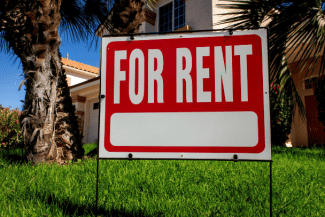Can Tenant Screening Decrease Your Landlords Insurance Premiums?
 Renting out an apartment is a tough job. You need to ensure your property is always in great condition, take care of your tenants’ needs, and pay for maintenance, repairs, and utilities. There is also a fair amount of admin involved.
Renting out an apartment is a tough job. You need to ensure your property is always in great condition, take care of your tenants’ needs, and pay for maintenance, repairs, and utilities. There is also a fair amount of admin involved.
Then there’s the matter of insurance. Landlords insurance is not compulsory, and you should compare your potential premiums to a homeowners insurance quote. However, it is worth having landlords insurance as there are specific risks associated with renting out a place.
When getting landlords insurance, you may be wondering how you can lower your premiums. The idea that tenant screening could decrease your premiums makes sense. After all, you are lowering the risks. But does it really have an impact?
Here’s what you need to know.
Starting Premiums
Unfortunately, tenant screening will not decrease your starting premiums when you get landlords insurance. Insurance providers calculate risk according to specific metrics. Since you will be getting your landlords insurance before renting the apartment out, you have not yet lowered the risk. Even once you rent your apartment out to a tenant you screened, there is no guarantee you will screen your tenants in the future.
While your insurer may not consider screening as a significant factor in lowering risk, it can truly save you from major issues. These issues may actually end up keeping your premiums down.
Claims Increase Your Premiums
When you start paying your landlords insurance, your screening policy won’t have paid off. However, since you do not have tenants from hell, your premiums are unlikely to rise due to a high number of claims. With bad tenants, you may have to put in claims regularly. This can lead to your premiums continuously growing. Eventually, even if your bad tenants give you justification to kick them out, the damage will have been done. Future premiums will stay high.
Good tenants can also make mistakes that end up forcing you to claim from your insurance. However, they are less likely to do so on a recurring basis. Your premiums may rise but not by too much.
Should You Require Renters Insurance?
Screening your tenants may decrease the amount of claims you have to make. But tenants might still make claims, and they can be opportunistic about them. Let’s say they do something which inadvertently leads to their possessions being destroyed. They could try to claim against you, stating that something you did was responsible for the damage.
Their statements may or may not be true. Either way, there is a chance that they will succeed, and you will have to pay them out from your own liability insurance. If a lot of their things were destroyed, this could be a hefty payout.
If your tenants have renters insurance, they are less likely to claim against you out of desperation. Renters insurance covers their possessions while they are renting. It also covers their own personal liability. If their things get destroyed, their own insurance will be their first port of call.
Renters insurance is not compulsory, but you can require it as a clause in the lease agreement. This is something you can negotiate if your tenant is reluctant to get renters insurance. You may offer to discount their rent by a few dollars a month to cover their renter insurance payment.
It is important to remember that their renters insurance does not exempt you when the fault truly was your own. If you do something that leads to their property being destroyed, you will have to claim from your own insurance, regardless of whether they have renters insurance.
Screening your tenants is important for a number of reasons and could save you money in the long run. However, when you apply for landlords insurance, your provider is unlikely to give you discounts for tenant screening.















 Accessibility
Accessibility